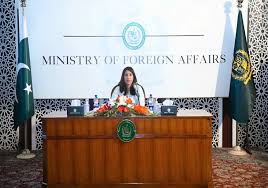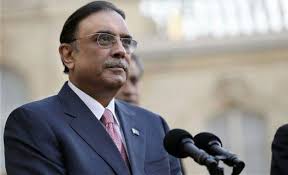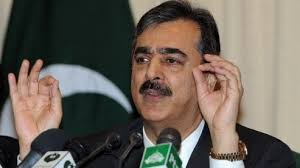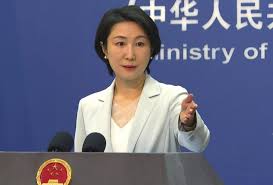The next UK government must bridge the Indo-Pacific and Europe
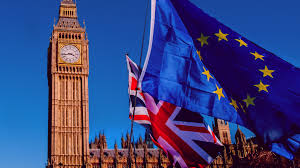
London: UK political debate about the Indo-Pacific has been closely linked with Europe policy since Brexit. The Conservative government pitched its tilt to the Indo-Pacific as evidence that the UK can prosper and even expand its global role outside of the European Union (EU).
The Labour opposition, meanwhile, attacked the government’s focus on the Indo-Pacific as a diversion from the pressing need to mend fences with Europe.
But rather than framing it as a choice between Europe and the Indo-Pacific, whoever wins the UK general election on 4 July can and should combine intensified engagement in the Indo-Pacific with better relations with the UK’s closest neighbours.
Although relations with Europe remain challenging, the current government has laid a solid foundation for enhanced British diplomacy in the Indo-Pacific. The UK has gained an important diplomatic seat at the table by securing dialogue partner status with the Association of Southeast Asian Nations (ASEAN), the anchor for much of the region’s security and economic architecture.
This is complemented on the defence front by AUKUS, which binds the UK closer to the US and Australia on security and military technology while helping the latter acquire nuclear-powered submarines.
On economics, the UK’s planned accession to the Comprehensive and Progressive Agreement for Trans-Pacific Partnership (CPTPP), an important regional trade deal, provides a springboard into the region.
The next UK government must build on this foundation by investing political capital, time and money into expanding these relationships further. But this should be done at the same time as strengthening ties in Europe, not instead of doing so.
The Indo-Pacific is of critical importance to both the UK and Europe as it is home to many of the world’s most dynamic large economies, the heart of the global manufacturing industry, critical international shipping routes that cut through hotly contested seas, and current and future tech powerhouses from China and India to Japan and South Korea.
There is, as the Chinese government might put it, the potential for ‘win-win cooperation’ here. EU leaders and most EU member states, including France and Germany, are also pursuing their own Indo-Pacific strategies and visions, acknowledging the region’s importance to Europe’s future.
The need for more effective UK-Europe coordination on the Indo-Pacific, and foreign policy more generally, will only become more pressing if Donald Trump wins the US presidency in November.
But middle powers like the UK, France, Germany and other European nations cannot move the needle on global issues – or in the Indo-Pacific – unless they cooperate more effectively. While a Brexit-shaped cloud still hangs over many bilateral UK-Europe issues, there is increasing collaboration among diplomats and defence officials on the Indo-Pacific.
The need for more effective UK-Europe coordination on the Indo-Pacific, and foreign policy more generally, will only become more pressing if Donald Trump wins the US presidency in November.
Although some analysts talk of the Euro-Atlantic and Indo-Pacific as separate ‘theatres’, Europe and Asia share a land mass, key trade routes and deep economic, geopolitical and security linkages. Smart UK foreign policy must be based on a better understanding of these connections.
This is partly about China, of course. Beijing’s growing global role and assertiveness means that for most British and European challenges, China is either part of the problem or part of the solution – or both. That goes for issues including curbing Russia’s war machine, tackling climate change and rethinking industrial strategy. But the linkages go beyond China.
Vladimir Putin’s signing of a new strategic partnership with Kim Jong-un’s North Korea underlines how Europe’s security, Asia’s security and global efforts to combat nuclear proliferation are tied together in ways that even China’s Xi Jinping cannot control.
The formalization of NATO’s engagement with the Indo-Pacific 4 – Australia, Japan, New Zealand and South Korea – reflects the strategic necessity of greater cohesion between US allies in Europe and Asia.
Beyond the UK’s allies, India and other large emerging Asian nations such as Indonesia and Vietnam are important sources of trade, investment and other economic opportunities. As these countries become wealthier and more powerful, the UK and its European allies will need to work with them to tackle many issues, from tech standards and trade to global flashpoints.
From US allies to the non-aligned, most Asian governments have welcomed the UK’s tilt. Despite the UK’s domestic problems, Indo-Pacific partners still see significant potential in deeper engagement with the world’s sixth biggest economy, which has a permanent seat at the UN Security Council, a technologically advanced (if small) military, is a global financial centre and a leader in many important industries.
But Asian governments are wary about whether future UK governments will commit the necessary resources and time to the region in the long term. They also want to see a UK that engages them as equals, not junior partners.
Both the Conservative and Labour manifestos are relatively light on foreign policy details, as is often the case in elections. Labour, which is likely to form the next government according to polls, has been on an Indo-Pacific journey of its own. Over the past year, it has toned down criticism of the Conservative government’s tilt and offered some signposts about its China policy, while emphasizing that it would put Europe front and centre of its foreign policy.
Although money will be tight, the next UK government must invest in personnel and research and devote adequate ministerial time to ensure that the dialogue partnership with ASEAN and the membership of CPTPP actually bear fruit and do not simply become dusty political trophies.

